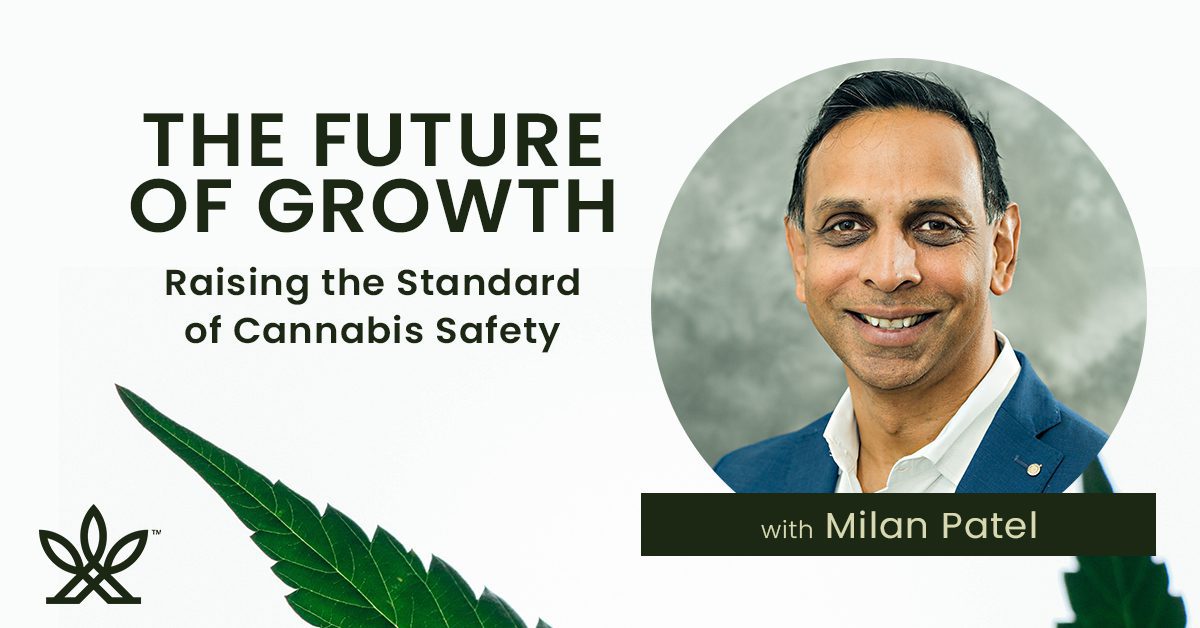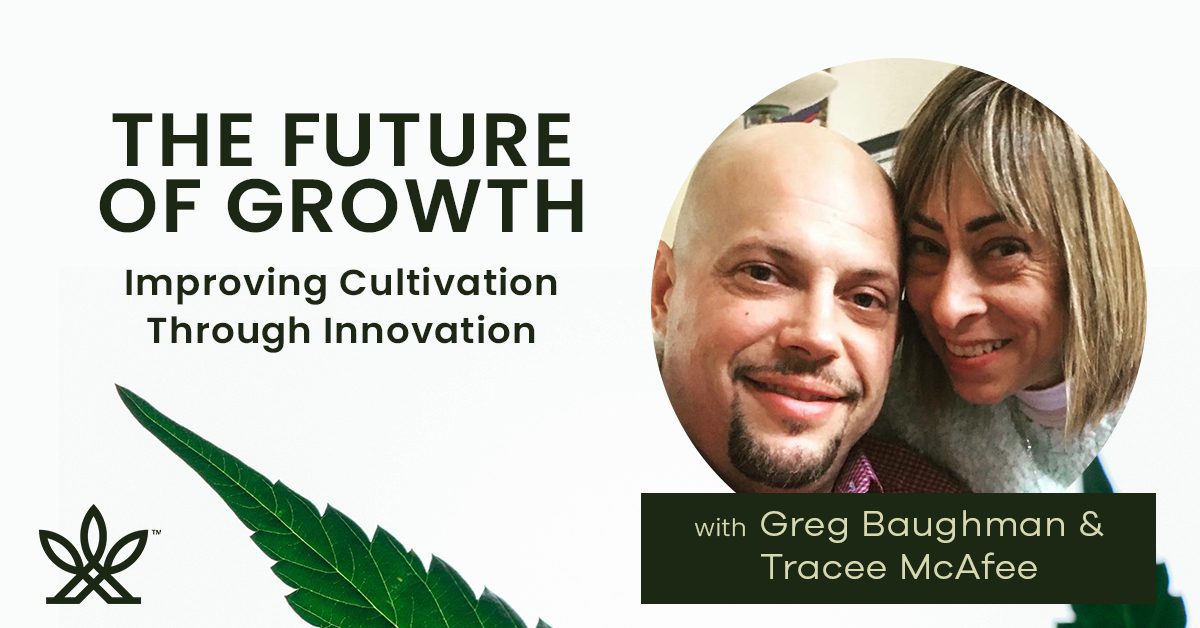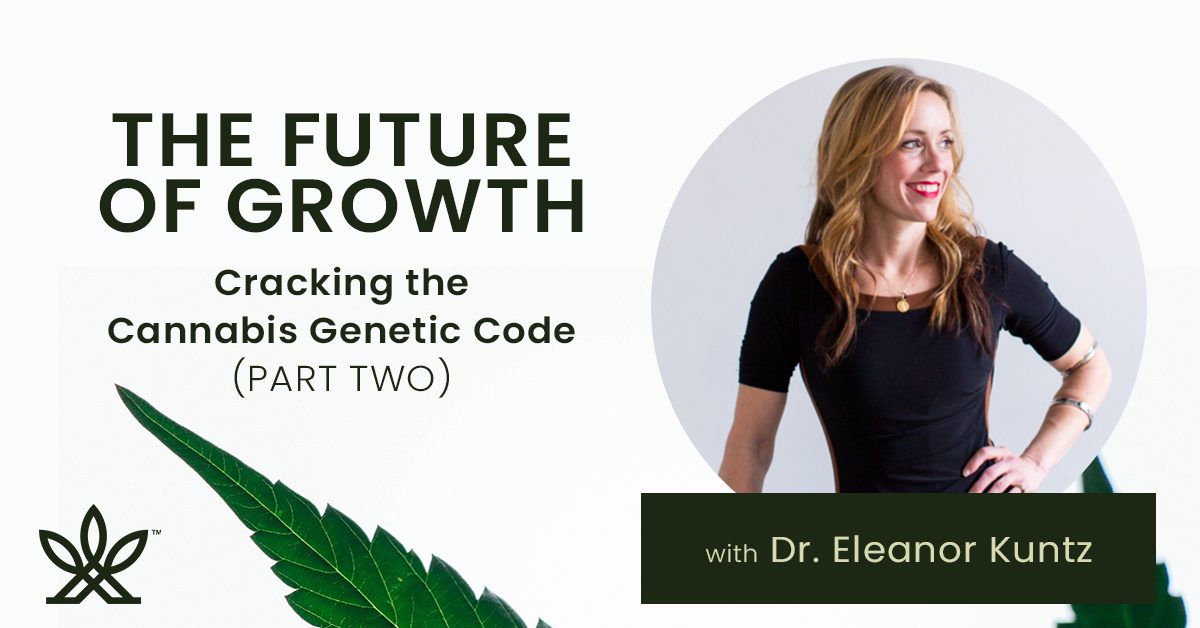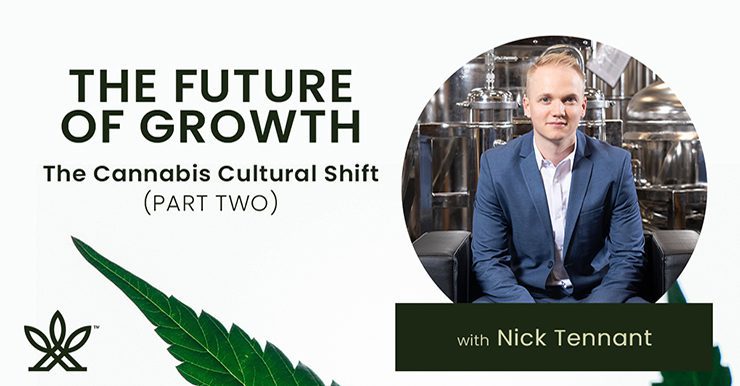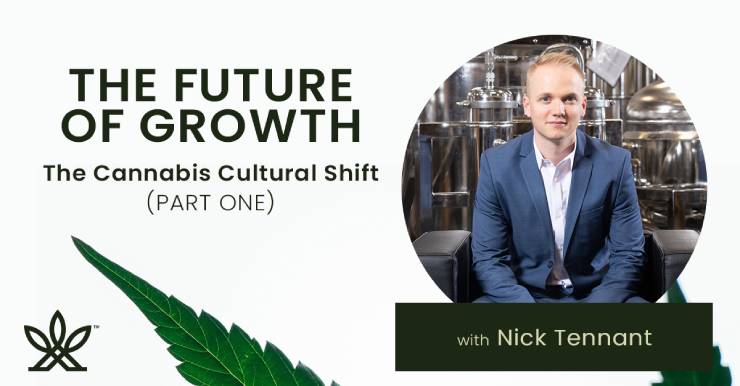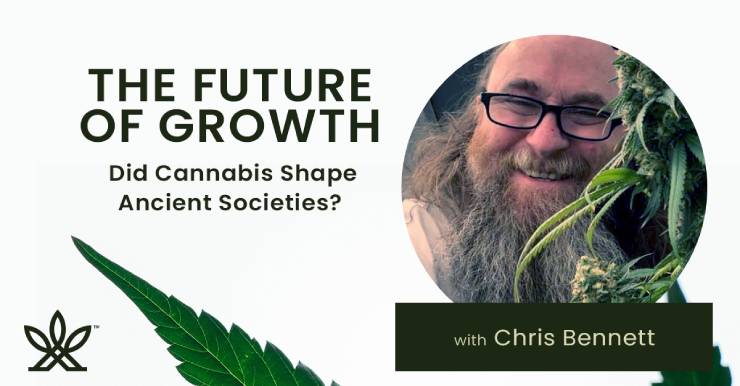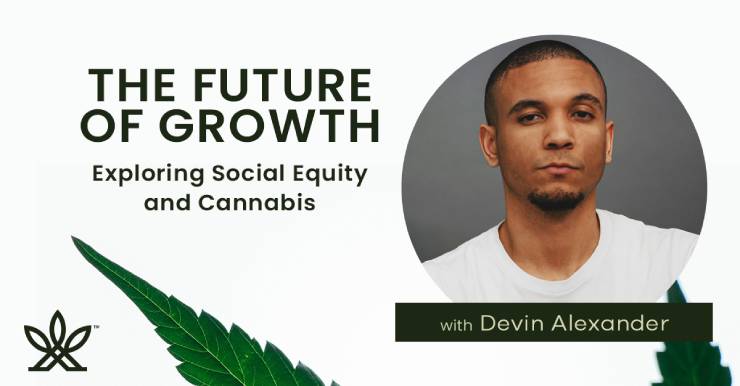
Cannabis has been a part of humanity’s journey for thousands of years, but there is still so much we are learning, and even more yet to discover. However, studying cannabis is no easy feat. The status of cannabis as a Schedule I illicit substance has severely hampered research possibilities in the United States. Yet as more states continue to approve their own adult-use programs, things may soon look greener for the American scientific community searching for answers.
On the latest episode of Agrify’s The Future of Growth podcast, Chief Science Officer David Kessler interviews Dr. Ethan Russo, board-certified neurologist and founder and CEO of CReDO Science, to explore where cannabis research stands today. One of the most prominent figures in the medical cannabis community, Russo is also the former Director of Research and Development at the International Cannabis and Cannabinoids Institute.
As a storied psychopharmacology researcher, Russo has long been on the front lines of the scientific world’s push to formally study cannabis. With decades of experience under his belt, Russo joins the show to discuss the hurdles that continue to hinder proper research and the importance of that research, among other topics.
Cannabis research in the U.S. lags behind other countries
Looking at the state of cannabis research in the U.S., it doesn’t take much effort to find where the sticking point lies. For decades, scientists have had to contend with dogmatic barriers and legal hurdles that continue to stymie meaningful research into cannabis and its health benefits. Thanks to federal restrictions against cannabis and other Schedule I drugs listed as such under the Controlled Substances Act (CSA), scientists have been forced to look outside of their own country to gain access. To someone like Russo, it’s been a frustrating reality.
“It’s been the bane of my existence for 25 years and is a convenient explanation for why I’ve spent a bulk of the last generation working for foreign companies,” he said. “It is not possible in this country to do genuine clinical research with domestically originating material.”
One of the biggest hurdles that scientists face is obtaining samples to study. Only very recently could researchers access medical cannabis outside of a single facility in Mississippi, a facility that was once expected to supply every interested researcher in the U.S. While some researchers have found clever ways around some of those barriers, for researchers like Russo who require extensive access to the plant, the federal government’s prohibition has been needlessly restrictive.
One restriction Russo mentioned was a stipulation that required anyone involved in a study had to be previous cannabis consumers. That requirement, he said, ends up “reducing the validity [of the findings].”
“The associated bureaucracy in doing with this kind of study is stunning, and people should have no illusions of that or of the difficulties involved,” he said.
Without access to a consistent supply of cannabis for research purposes, Russo said the existing apparatuses for cannabis research is “a system that was designed to fail.” Since good research requires repeatable steps for peers to replicate and validate, the inability to consistently access the same plants makes it difficult to verify data.
“It’s material that’s not standardized, which means that it’s not consistent,” he said. “If you had used [a particular cultivar] and had a good result, you would not be guaranteed of having the same material again. And make no mistake—this is by design.”
Working with independent breeders for genetics research
Russo shared on The Future of Growth that he is looking into select cultivars that contain high levels of cannabigerol (CBG), tetrahydrocannabivarin (THC-V), and “specific terpenoid profiles that are going to complement the cannabinoid activity.”
“There are at least 150 cannabinoids that the plant makes and there may be others that appear as artifacts of analysis—when you start heating things, they change — but we really know a good bit of the pharmacology of only about a dozen of the phytocannabinoids in cannabis,” Russo said. “What we do know is already quite dramatic in terms of the therapeutic possibilities.”
Though those compounds are particularly sought after for research purposes, Russo said he was also interested in them for their efficacy for consumers seeking relief through medical cannabis.
“One of the focuses of our work is trying to develop better chemovars that would be available, not just for research, but to consumers,” he said.
Russo said he and his company partner with independent breeders to achieve this, partnering with Breeder’s Best to identify qualified partners. Though he said certain Canadian companies have programs already in line to help develop new cultivars, Dr. Russo called his interest in working with independent breeders a “philosophical difference.”
“It might be the old hippie who’s been in the Emerald Triangle developing better forms of cannabis over the last 30 years,” he said. “And maybe he’s got something that they’d like to get out there on make available to patients in need, but the same could apply to-called recreational or adult use cannabis.”
When seeking out certain plants to study, Russo said he was looking for “anything that’s really predominant in a cannabinoid beyond THC and CBD.” When it comes to terpenes, he said his company was more interested in terpenoids that either add to the therapeutic properties of a cultivar or counterbalance any side effects. That list would include limonene, linalool, caryophyllene, and α-Pinene.
“Our motto is we want to make cannabis safer and better, but that’s really a broad approach to things,” Russo said. “It encompasses a lot of different endeavors, but we’re really serious about it.”
Explore more episodes of The Future of Growth
Each month, David Kessler invites a new guest onto The Future of Growth podcast to hear more about their experience with cannabis and where the industry is headed. Subscribe for updates on your favorite platform, including Spotify, Anchor, Google Podcasts, Breaker, Radio Public and Pocket Casts.
Check out prior episodes here:
- Exploring Social Equity and Cannabis, with guest Devin Alexander
- Cannabis as Produce: Cooking, Healing and Wellness, with Robyn Lawrence
- Craft Cannabis, Cultivar Preservation and Eco-Responsibility, with “Medicine Hunter” Chris Kilham
- The Indelible Mark of Cultivars, with Jimi Devine of LA Weekly
- Uniting Chemistry with Cultivation, with Steve Albarran of Confident Cannabis
